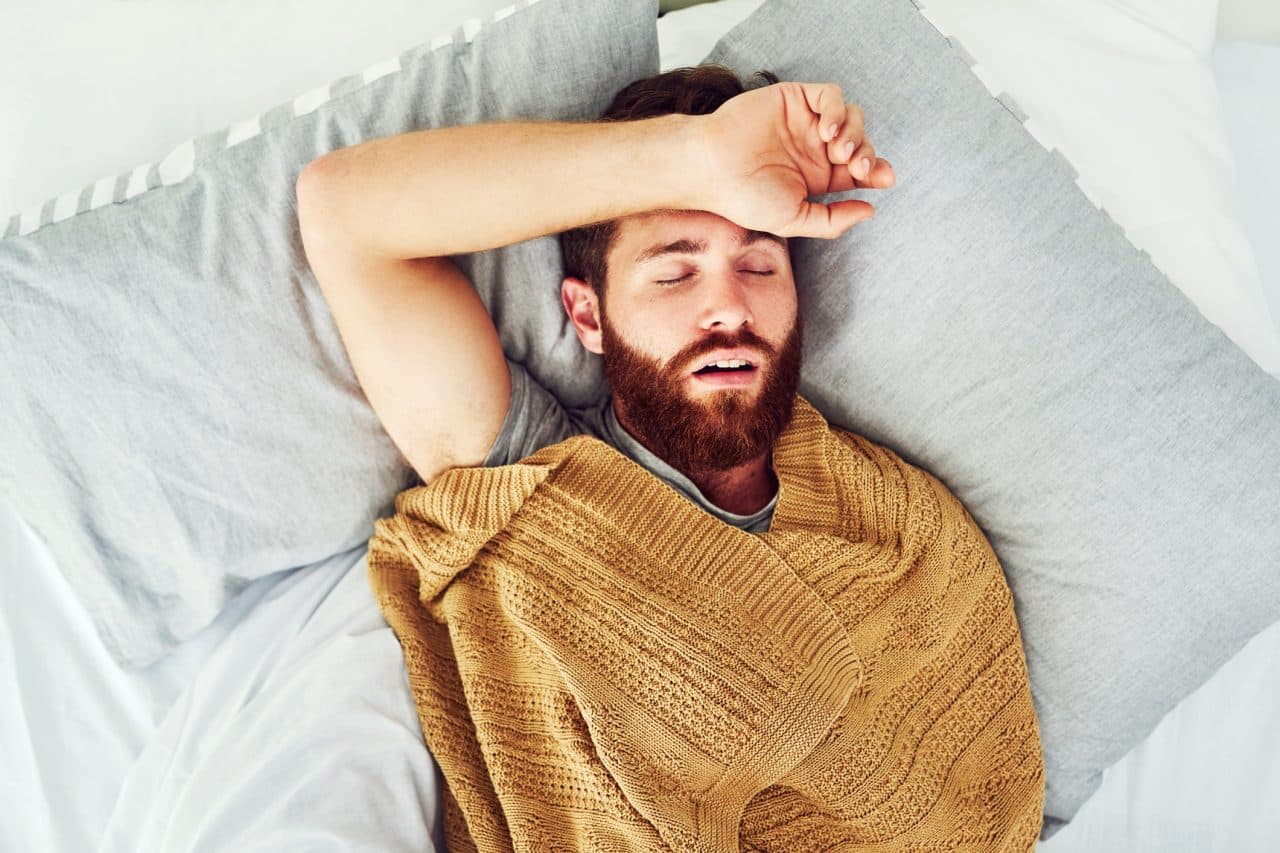Allergy symptoms like nasal congestion, a runny nose and sneezing can cause or worsen snoring and interfere with your quality of sleep.
The Connection Between Allergies and Snoring

A 2011 study examined the prevalence of allergic rhinitis (inflammation in the nose caused by an allergen) and the development of obstructive sleep apnea syndrome (OSAS). They found that out of 80 patients with OSAS, 18 (23%) had allergic rhinitis.
Researchers concluded that “allergy symptoms allergy symptoms such as nasal obstruction and sneezing should be added to the questions that are asked to the patients with simple snoring and OSAS and that the investigations should include the skin prick and RAST tests in these patients.”
How Allergies Affect Sleep Quality
Allergy symptoms can affect your ability to breathe easily, making it harder to fall and stay asleep. Regularly waking up to a sneezing fit or runny nose in the middle of the night prevents you from getting the deep, restful sleep you need.
In addition to snoring, having allergies can make it more likely that you experience:
- Insomnia
- Trouble falling or staying asleep
- Short sleep
- Daytime fatigue
- Morning headaches from lack of sleep
Manage Your Allergy Symptoms to Reduce Snoring and Sleep Better
While it can be challenging to get the sleep you need if your allergies are acting up, you can take steps to manage your symptoms and get some much-needed rest.
- Use an air purifier to rid your bedroom air of allergens like mold, dust mites and pollen that may have been brought in from outside.
- Keep your doors and windows closed to keep outdoor allergens out of your home as much as possible.
- Keep pets out of the bedroom to prevent pet dander from hampering your sleep. Instead, invest in a comfy cat or dog bed for them to sleep on in another room so that you both can get a better night’s sleep.
- Dust and vacuum regularly to remove allergens from your home. Consider cleaning once a week and when you can avoid floor-to-floor carpet, heavy drapes or upholstered furniture in the bedroom.
- Shower before bed to help wash any pollen off your body and hair. It’s also a good idea to wash any clothes immediately after you have spent time outside on high-pollen days.
- Take allergy medication at night as it ensures the dosage is still strong in your system when you go to bed. Not to mention, some allergy medications can make you drowsy and aid in sleep. However, talk to your medical provider or pharmacist at Propst Discount Drugs before changing your medication routine.
- Visit an allergist if your symptoms persist despite lifestyle remedies and over-the-counter treatments. They can perform allergy testing to identify your triggers and develop a custom treatment plan that’s right for you.
For more information or to schedule an appointment, call North Alabama ENT Associates today.